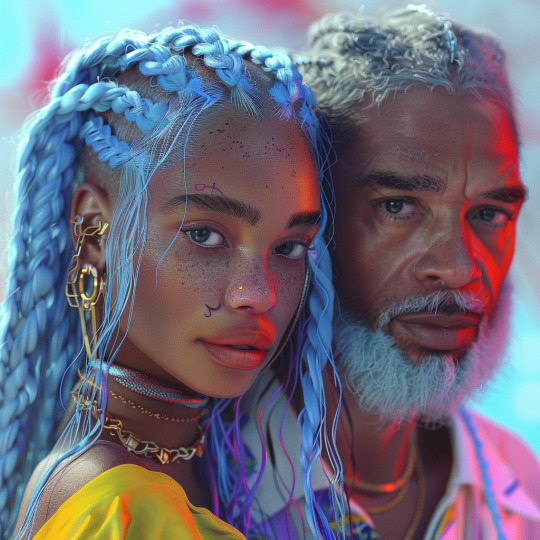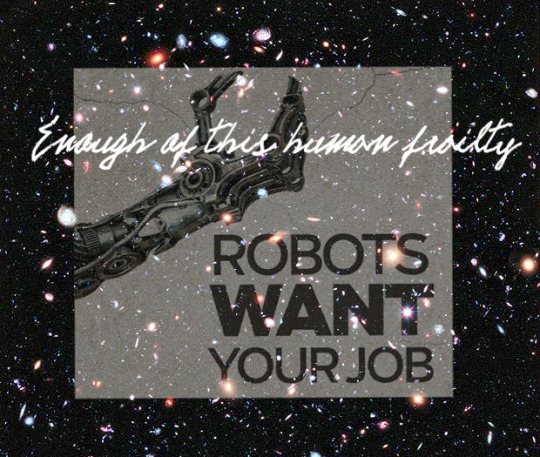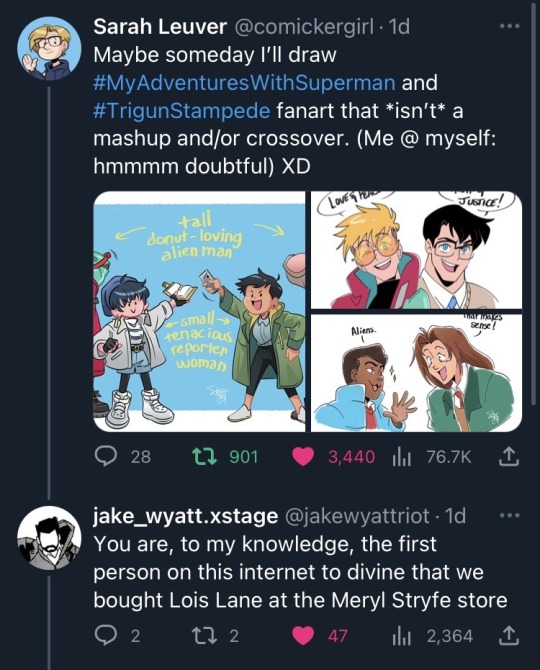#cultural commentary
Note
Re: Capitalism vs Calvinism (you make a solid point, btw), do you have any thoughts on why the two are conflated as much as they are?
For context, here is the post that this is about.
There are sort of two ways to answer that question:
Why is it natural or tempting to conflate capitalism and Calvinism? That is, what are people getting right when they do this?
Why do people make the mistake of conflating capitalism and Calvinism -- what leads them to get it wrong?
The answer to the first question is pretty obviously that the culture of capitalism in northwestern Europe was strongly conditioned by the culture of Calvinism. They grew up at the same time, intertwined with each other. The Commercial Revolution, people other than Jews (and much more numerous) who were allowed to charge interest on loans (which Catholics couldn't), etc. It also has to do with the Calvinist doctrine of predestination and how people's success and industriousness in the world were taken to be signs of God's favor -- not that you could earn it, because God's grace is given by His free will alone, but it was supposed to be an indication that God liked you and was allowing you to be virtuous (which you couldn't claim credit for on your own).
The ideology we think of as capitalist, about how people are naturally lazy and selfish and need to be manipulated with the right incentives into serving the public good, is originally Calvinist: it views human nature as irretrievably fallen without God's special grace (as I learned in a very interesting talk on Hobbes recently). You can't teach people to be truly good, to recognize the good and desire it for its own sake (as Catholic theologians thought you could, even though fallen human nature made that difficult); all you can do is set things up so that it's in their interests to do the things you (the community leader/ ruling authority) want them to do. @squeeful's tags on the instigating post nicely sum up this pessimistic view about human nature: #it's a viewpoint that people are inherently flawed #not in like a human way #but in a 'if given free time they will Sin'
So, given that people will Sin if you give them any leeway at all, you have to make sure you're taking up all their time with Something Productive. If they're working all the time, they won't have time to sin; if they're always thinking about work, they won't have mental space to think about sinning (which is just as bad as sinning, according to the Calvinist worldview); if they're "wholesomely" exhausted from work, they won't have the energy or inclination to sin. But of course people are naturally lazy and hate working, so how do you make them do this? Make it in their interests! Reward them with wealth and praise if they work all the time! Punish them with starvation and shame if they don't! The culture and worldview of capitalism follow from the culture and worldview of Calvinism.
OK, so, what about the second question? Why do people attribute this crap to capitalism alone rather than tracing it back to its deeper origin in Calvinism? Well, probably because capitalism is blatantly all around us, while Calvinist theology isn't -- at least, not obviously. We don't have stern bearded guys preaching at us about how God finds us loathsome and repulsive and it's only by His infinite grace and mercy that any of us are saved from the eternal torments of Hell that our degraded, sinful nature so richly deserves. Calvinism has been pretty thoroughly secularized in our daily experience, to the extent that we might think we're not religious at all, even when our mindset is profoundly shaped by religious ways of thinking.
But what I wanted to get across is that the dependency is asymmetric, not just in the sense that Calvinism came first and modern capitalism as we know it developed later, but in the sense that Calvinism could have given rise to systems and practices other than capitalism (and sometimes does), while capitalism as we know it (probably) couldn't have developed without the underpinnings of the Calvinist worldview. That's why you can see the Calvinist way of thinking even in anti-capitalist Social Justice movements, especially in the US, whose dominant culture has been profoundly shaped by Calvinism (from the English Puritans, the Dutch, and some proportion of early German immigrants). That is, you still get the view that people, or certain kinds of people, are inherently sinful (racist, sexist, homophobic, bourgeois, etc.); that the only way to not be contributing to evil forms of oppression is to be actively working against them at all times, including purifying your mind of all oppressive, bourgeois ways of thinking; and that even your moments of rest, idleness, and pleasure have to be justified in terms of the aims of work: your 'self-care' is so that you're refreshed to keep working more effectively for liberation, or else you're taking your joy in defiance of the systems that want you to be miserable, so it counts as its own form of resistance. And these subcultures, like OG Calvinism and its capitalist offspring, also rely heavily on the mechanism of shame to get people to be constantly policing their thoughts, words, and actions, ever-vigilant lest someone catch them Sinning. After all, people are sinful, so you can't rely on their natural inclination toward the good; you need to leverage their impure desire for acceptance and the good opinion of others.
(Figuring out how this cultural strain relates to the neo-Rousseauian "humans are Good, only the corruption of capitalism makes them evil" ideology in the online Left would be a further project... I suspect there's a tension between the official line and the way people actually think and behave subconsciously; and I also suspect there may be a bifurcation between the groups of people who are regarded as Fallen, on the Calvinist model, and those who are taken to represent the prelapsarian naturally good state of being.)
71 notes
·
View notes
Text
i know i’m far from an expert on history but it always bothers me to see bob marley’s portrait hanging in my local weed shop. like, i’ve loved reggae music since i was young, well before i ever smoked weed, i know listening to music is pretty rad when stoned, and i admit i understand that a lot of prominent figures and concepts idolized by the hippies and revolutionaries of the 60’s and 70’s in the usa eventually became synonymous with drug use, esp marijuana, due to smear campaigns against counterculture so maybe it is a kind of defiance to display it proudly? but while i understand the admiration a lot of disillusioned young people in the usa in the 60’s and 70’s would have felt for the people fighting the class war in jamaica and the reggae music emerging with lyrics about said war but still pushing for peace, for one love, as they worked to topple inequity and corrupt systems while redefining perspectives on race, oppression and intergenerational trauma but how did bob marley become “the weed man” in the cultural consciousness when he was a spokesperson for political change and class revolution? is it only that way in the us? do other countries and cultures see him as more than a stoner icon with his face on rasta memorabilia sold at jacked up prices to college kids who have never even heard of the rastafari revolution, the pan-african movement or the jamaican civil war, idk why but it really does bother me to see a strong voice for peace and change reduced to a face plastered on drug paraphernalia and stoner t-shirts. like… damn. that’s the death of a revolutionary in the capitalist tradition, i suppose. bob marley’s portrait hanging above the bud hut cash register, “grunge” clothing sold by fast fashion corporate hellholes, t-shirts with kurt cobain’s suicide note written on them being sold for 800 bucks a pop, eat the rich stickers for sale on amazon of all places, santa muerte being sold as a goth accessory or a “hardcore” generic tattoo in the us stripped of what she symbolizes to me and many other latina/o people who were raised with mexican neopaganism and folk catholic traditions, sanitized street art commissioned by some silicon valley suit that is purely aesthetics with no heart, no soul, nothing related to the authenticity of artistic vandalism, just imaginary street cred points for a rich dick. i get the same feeling in my stomach seeing the “aesthetic” whitewash of counterculture, the clownery of “alt” culture on apps like tiktok, the cashing in on the suffering of the oppressed for a quick buck and the tragic victory of cementing hippies and beatniks and freedom fighters in the minds of the following generations as degenerate druggies (thanks nixon and crew) that i get when i hear that pop remix of “the hanging tree” and it’s a lot to take in while i’m just trying to buy a box of strawberry cough prerolls.
#bob marley#hippies#revolution#counterculture#weed#1960s#1970s#grunge#reggae#jamaican civil war#colonizers#fuck capitalism#eat the rich#tiktok#stoners#rambling#rant#cultural commentary#political commentary#history#politics#class war#rastafari revolution
22 notes
·
View notes
Text
you know I was clicking through the internet and I found an article about the antitrust suit against the fruit company for making their phone's messaging app only barely compatible with android phones and making texts from android phones show up green.
and most people seemed to be complaining about the color of the text message, rather than the fact that you can't use several features of the messaging app when you're messaging an android phone (read receipts, emojis, lack of encryption). it would seem that even one android user in a group chat "breaks" the chat and causes the features to become unavailable to everyone.
so what do?? deal with it, mindful of the fact that maybe you can't use emojis but at least you don't have to press 9 four times for the letter S? switch to another messaging app like signal or whatsapp, circumventing the issue?
no. naturally the only possible thing to do is make iphone only group chats and exclude all your android user friends. the author of the article admits to doing this when planning a trip with friends, saying he would text the android friend separately to avoid "breaking" the chat. then freely admits he never did and friend will have to go on a trip he had no opportunity to help plan, and still doesn't know about.
and ... if people are so selfish and shallow and quick to ostracize at the drop of a hat, I don't think we have much hope for creating a kinder world for any sort of marginalized person. inclusion requires effort, and if people are this casual about excluding people for having different phones, then what would their solution be to a friend who is blind and needs a menu read to them? mobility-impaired and needs the elevator? no car and needs a ride?
they would exclude the friend, no doubt about it, and fail to register that they were doing anything wrong.
when did doing the exact opposite of what the after school special was preaching get so normal?
4 notes
·
View notes
Text

Don’t see any men shutting the fuck about abortions though 🤔
9 notes
·
View notes
Text
Question that sprung to mind while shopping at a grocery store but genuinely who are the magazines and other literature at the check out for. Who is out there buying the one edition of Archie comics or crossword puzzle in 2023. I understand why it would be a successful like in pre and early internet era, but I feel like anyone who would be popping off over the National Inquirer or whatever “clickbait” magazine can just get that stuff online.
#like I understand the business concept#and it makes sense for stuff like the candy and phone chargers#but does it actually still working for literature#cultural commentary#text#once again who the fuck are the Archie comics for#idk maybe I’m just autistic and part of gen z tm
2 notes
·
View notes
Text
2024's Must-Have Reads: Discover the Latest in Physical Books – Updated Pricing!The Physical Books 2024!
Why These Books Are a Must-Have This Year:
Our 2024 collection, featuring “STORM,” “The Vibrational Cure,” and “The Birth of a Genre,” is curated to provide not just reading material but immersive journeys. Whether you seek a transformative personal experience with “The Vibrational Cure,” an artistic and cultural exploration in “The Birth of a Genre,” or a creative coloring adventure in “STORM,”…

View On WordPress
#Art and Photography#Artistic Collaboration#creative empowerment#Creative Transformation#Cultural Commentary#Cultural Innovation#Inspirational Reads#Literary Art#Manifestation Techniques#Manifesting Dreams#Mindfulness Coloring#Music and Poetry#personal growth#Self-Improvement Books#Unique Coloring Books
0 notes
Text
The Creativity Crisis: Escaping the Grind of False Idols in Pursuit of a More Authentic Life: You’re Doing Human Wrong pt. 2
Twitter
Patreon
GitHub
LinkedIn
YouTube
Wow. The reception from last week’s post has nearly doubled my audience and exponentially improved my motivation. It’s both humbling and electrifying to know that these words resonate with so many of you. This overwhelming response has not only expanded our community but has also injected a fresh surge of inspiration into my work.
So, riding this wave…

View On WordPress
#American dream#Authentic Living#Authenticity#Burnout#Creativity Crisis#Cultural Commentary#Cultural Myths#Diet Culture#Digital Society#Efficiency Myth#False Idols#Grind Culture#Intrinsic Motivation#Introspection#Life Hacks#Lifestyle Choices#media consumption#mindfulness#Modern Work Ethic#Narrative Exploration#Personal Fulfillment#personal growth#Personal Journey#Positive Thinking#Real-life Experiences#self improvement#self-discovery#Self-Help Critique#Social Media Trends#Societal Pressure
1 note
·
View note
Text

©Leigh Phillips
#digital art#internet poetry#net art#new media art#poetry and art#artists on tumblr#barbara kruger#dark academic aesthetic#automation#humanities#workers rights#labor economy#labor rights#cultural commentary#art meme
1 note
·
View note
Text
Subscribe 2 my substack 💕
Going to write about a lot of different things but mainly cultural commentary, fashion, music, and life's lil moments
0 notes
Text
The Urgency of Storytelling
Welcome to The Urgency of Storytelling. Here we delve into the realities of society’s makeup, regularly complementing said discussions with human-centred storytelling. We’re here to poke and prod at half-truths, offer our flashlight to full ones, sit at the table of collective imagining and overstay our welcome.
Lets get your coat hung up.

Photography: Christopher Anderson
#humanity#loveforhumanity#decolonialism#decolonisation#decolonize#humanitarian#radical inclusivity#radical imagining#revolutionary#visual storytelling#storytelling#cultural criticism#cultural commentary#social issues#social justice#sociallyengagedart#working class#marginalised#against the grain
1 note
·
View note
Text
So Jake Wyatt, one of the creators of My Adventures with Superman, seems to have confirmed that Meryl Stryfe was indeed inspiration for their characterization of Lois Lane.

I love an iconic tenacious short girl chasing a humanoid superpower.
#Meryl stryfe#lois lane#my adventures with superman#Trigun#Trigun Stampede#Tristamp#trigun commentary#I love how so many ppl were talking about how New Lois reminded them of Meryl and lo and behold there was a legitimate reason#we love a female character icon#Lois is already obviously a massive cultural icon#but I love that Meryl is now an icon in her own right#such that she was used as a basis for a new take on Lois
3K notes
·
View notes
Text

the elephant in the room
ancient truth 👉👈👆👇🫵
“divide and conquer”
look beyond the veil
the one you’re pointing the finger at is often not the cause of your problem
not everything has to be a political cause. not all your feelings have to be categorised, diagnosed, defined and reverse engineered to a childhood trauma.
accountability?!yes it’s needed but it can go to the extremes of being toxic, shaming and blaming the other… is that even helpful? what does that teach to the other? or to you?
revenge?! hatred?! isolation? seclusion?!
how does your heart feel after any of that?
what happened to teaching by example? showing love and respect.
instagram really dehumanised all our interactions.
what happened to living life? enjoying the mundane and the little moments?
if you really want to point finger, point at at the system that told you any of these.
instagram /current culture can feel like a mean girls club and i am not with it
the pendulum does swing… but aim for the middle. widen your perspective
life’s not a one size fits all
🤍
#poster#graphicdesign#culture#cultural commentary#mental conditioning#divide and conquer#ancient#philosophy#deep sigh
1 note
·
View note
Text

5 notes
·
View notes
Text
Thinking things thinkers think
Thinking things thinkers think
How often do you think you think?
Don’t worry, the whole article is not gonna be some stupid tongue twister, my aim is, as a matter of fact, that the article won’t be stupid at all, but all the opposite.
So it’s a serious question, I’d like to invite you to stop for a moment and let it sink in, try to come up with an answer.
Now, perhaps this is not you, but I wouldn’t be surprised if 90% of…

View On WordPress
#analysis#blog#blogger#capabilities#civilization#cognitive#cognitive development#commentary#conclusions#critic#cultural commentary#culture#development#education#philosophy#questions#reflections#society#system#think#thinking#thoughts#writer
0 notes
Text
For three years, Dan Howell didn’t post anything on YouTube, and for his 6 million subscribers, this was a very big deal. As one half of the longtime vlogger duo Dan and Phil, he was known for writing and performing sketch comedy, internet culture commentary, and occasionally more serious vlogs about mental illness. A typical Dan and Phil endeavor, be it a book or a world tour or a series, might be called something like “The Super Amazing Project” or “Interactive Introverts,” nodding to early memes associated with “smol bean” culture. Naturally, they became superstars, particularly among teenage girls.
But after posting a coming out video in 2019 called “Basically I’m Gay,” Howell went completely silent on the platform. That was until last week, when he returned with a feature film-length monologue on why he quit YouTube in the first place.
For years, digital creators have been trying to convey the ennui of this supposed dream job: they’re lonely, they’re burnt out, they’re built up then tossed aside by unfeeling algorithms and corporate bureaucracy. They feel stuck between the kinds of content that makes them money and the content they actually want to produce.
Howell enumerated these reasons and more, all of which are good reasons to quit a job you hate. Another, less discussed one, however, is something I’ve come to call “YouTube brain.” Compare it to “Twitter brain,” in which spending too much time on Twitter results in someone becoming argumentative and perpetually outraged, or “Instagram brain,” (image-obsessed and overly materialistic), or “TikTok brain,” (unquestioningly devoted to the latest slang or trend before moving on to the next one). YouTube brain, from the perspective of the YouTuber as opposed to the viewer, is what happens when you are both creatively and financially subject to the whims of other people’s attention spans for years at a time, weighed down by neverending demand for more content for dwindling returns.
Chronic YouTube brain can land you in some bizarre circumstances. Take Michelle Phan, the longtime beauty YouTuber who last week claimed that she had “healed a man who had been in a wheelchair for years” through the power of “Divine Love.” This supposedly took place at a retreat in San Diego hosted by influencer Joe Dispenza, who’s best known for falsely presenting himself as a medical doctor while peddling vague “healing” workshops. It’s only the latest in a long history of Phan amplifying pseudoscience: In 2010 she claimed that a “sign from God” saved her from being murdered by a homeless man; she’s previously hired employees based on their astrological sign. While not exactly “pseudoscience,” she’s famously done things like use (clean) cat litter as a facial mask, which I would argue is the perfect manifestation of YouTube brain: unconventional thinking amped up by shock value.
The YouTube celebrity pipeline typically looks something like this: A creator might start out within a particular niche (gaming, makeup, daily vlogging, sketch comedy), and through their onscreen charisma, develops a following made up of fans who come less for, say, the games, and more to feel as though they’re hanging out with a friend. At this point, at least one of three things will happen: Either the creator will achieve such a level of success that they’ll no longer feel “relatable” to audiences and must reckon with their persona (see: Emma Chamberlain), the creator will be subject to some level of cancellation for past actions (see: basically all of them), or the job will create such a pressure-cooker environment that the creator quits altogether — but only for a while.
Consider Shane Dawson, the controversial vlogger known for his popular conspiracy theory videos and “documentaries” about fellow YouTubers, who was quasi-canceled along with many others in June 2020 for past racist slurs and offensive jokes. After a 15-month hiatus, he returned in October 2021 with a 40-minute video called “The Haunting of Shane Dawson” and has since followed it up with other personal updates and ghost story theories. 2020 alone saw so many creator reckonings that Vulture compiled a list of 16 of the most notable; it’s become such a standard rinse-and-repeat cycle that the YouTuber apology was skewered by SNL.
There are anomalies, of course. Having grown an enormous cult following from her comedic Vines (“Merry Chrysler!” is her doing) and later her YouTube channel, Christine Sydelko left the internet in 2019 and hasn’t looked back since. “I just don’t like being famous,” she told NBC News earlier this year. “You’re lying to people to try to make them seem like you’re their friend for the sole purpose of selling things to them.” Another anomaly is Jenna Marbles, who apologized for old videos in which she wore blackface to impersonate Nicki Minaj and rapped in an offensive parody of an Asian accent in June 2020. Her account, which had 20 million subscribers, has been dormant since then.
For the most part, though, once a YouTuber reaches a certain level of success, they’re a YouTuber for life. I’m less convinced this has anything to do with the platform itself and more about the kind of person it attracts and who ends up succeeding. In my years of interviewing them, I’m always struck by the way YouTubers — and creators writ large — make sense of the world, which tends to be fervently individualistic and, at times, a little bitter. This is an understandable attitude to have when your livelihood is dependent on the creator economy, in which individuals compete against one another for the most attention possible.
Vloggers tend to be keenly, almost freakishly attuned to the in-depth analytics YouTube provides for them. “It is brilliant and terrifying how much information YouTube gives you about your content and your audience,” explains Howell. “If you’re making a video from the heart, truly expressing yourself … you are greeted with a wall of red lines saying ‘Sorry, nobody likes this, sweetie.’” He makes an apt comparison to children’s programming: Public television, for instance, can put out shows like Arthur or Mister Rogers’ Neighborhood not because they’re cash cows, but because they provide a service to the public. Meanwhile, the most popular kids’ programming on YouTube seems to be a mess of LOL Surprise or Kinder egg unboxings and glitter slime ASMR videos.
Most of all, I’ve found that YouTubers tend to view other people and situations in black and white, divided between what’s good for themselves as individual creators and outside forces that wish them harm. They are often distrustful of institutions and organizations, particularly the media, whom they feel antagonize creators because newsrooms are scared they’ll be replaced by them (though PewDiePie is known most for this belief, Howell’s latest video also includes references to it). In this, they are not dissimilar to the attitudes of the wider public, who are increasingly skeptical of established institutions but quick to believe that Satanic forces are present at music festivals, for instance, and that despite evidence to the contrary, they will be among the 1 percent who makes money from joining an MLM or, say, an NFT project.
Fittingly, Phan has become something of a crypto evangelist over the past few years, shilling for an industry best known for its sky-high promises and unpredictable outcomes. After all, this isn’t so different from YouTube, where the chance to become a famous millionaire is vanishingly small but exists nonetheless. It’s such an alluring fantasy that even the YouTubers who have experienced (and been a part of) the ugliest aspects of it — Jeffree Star, James Charles, Shane Dawson, Tana Mongeau, Trisha Paytas, Gabbie Hanna — can’t truly log off. The same is true for Howell: At the end of his 90-minute monologue, in which he describes his experiences with YouTube as traumatic and terrifying, he announced he would continue to make videos, and that he would be going on a world tour called “We’re All Doomed!”
#popular#article#entire article#youtube#youtubers#cultural commentary#idk if i agree with this article but i do find it very interesting#i stopped watching youtubers sometime in high school and now i feel like an outsider looking in on an increasingly unhinged world
0 notes
Text

this is about keto but it reads like someone giving advice to an obligate carnivore ghoul who is married to a human
#cw food#cw diet culture#this is a repost of a screenshot divorced from original context with new commentary#the information superhighway you guys#some sort of steak on a stick of a bowl of chicken wings#reddit
313 notes
·
View notes